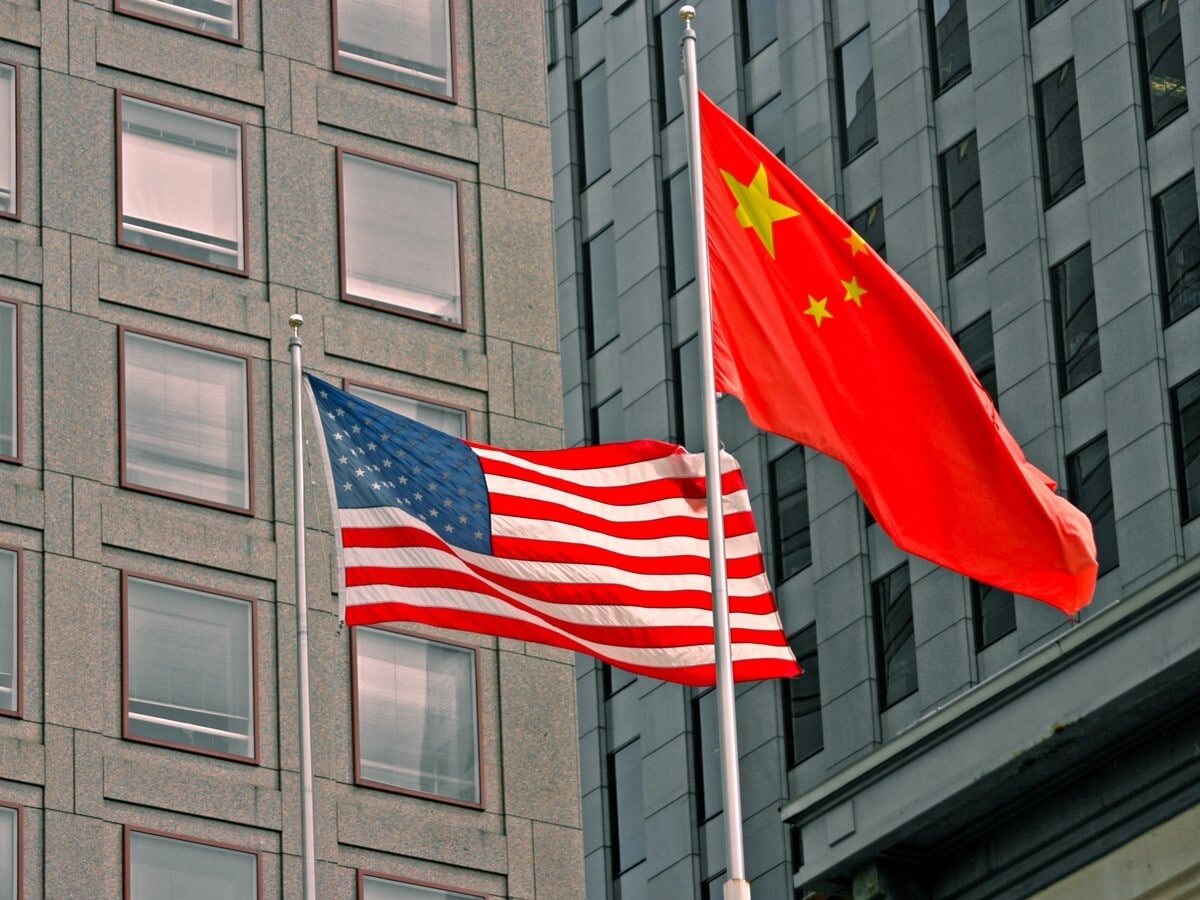Last week US Trade Representative Katherine Tai held discussions with her Chinese counterparts, in what could prove to be good news for Apple [AAPL], Tesla [TSLA], and Alibaba [BABA] share prices.
Implementation of “phase one” of former US President Donald Trump’s trade deal appears imminent as the current President Joe Biden is also rumoured to be scheduling a virtual meeting with his Chinese counterpart, President Xi Jinping, before the end of the year.
The starting point may be reestablishing China’s spends on US goods and services and resolving trade disputes, Tai said in an announcement on October 4. Future steps are still speculative and no firm agreements have yet been reached.
China needs to spend
Last year, China committed to a $20bn increase in spending on US goods and services compared to 2017 levels, in the two years until the end of 2021. The Peterson Institute for International Economics has calculated that China has only purchased 62% of the agreed amount on a prorata basis.
China’s Vice Premier Liu He is said to have pressed Tai for cancellation of US tariffs and sanctions, on October 9.
Tai referred to “serious concerns” among the US administration regarding China’s “state-centred and non-market trade practices,” whose absence she felt were shortcomings of the phase one deal.
Still, officials view the latest developments as a warming of relations between the two countries. Analysts believe discussions for phase two of the agreement could begin by the end of the year.
The issues to be addressed in China span beyond trade. Jake Sullivan, US national security adviser, has reportedly raised human rights concerns on a call with Chinese diplomat Yang Jiechi, a topic the US is expected to continue to press on.
Tiff over Taiwan
Both the US and China have staked a claim over Taiwan – a center for making computer chips.
China even bolstered military strength on the borders of the island nation. Xi vowed “peaceful reunification” with Taiwan.
The move provoked Taiwan’s President Tsai Ing-wen, who has promised to bolster the country’s defenses and resist any attempt to force Chinese rule on the country. “There should be absolutely no illusions that the Taiwanese people will bow to pressure,” Ing-wen said in a speech, which Beijing denounced as misleading and confrontational.
Following a call with Xi in September, Biden reported that both leaders had agreed to stick to the “Taiwan agreement,” although it is unclear exactly which agreement this refers to.
Stock impact
The implementation of a US-China trade deal could have profound implications for companies in both nations.
The Apple [AAPL] share price slumped as Tai made her comments. Apple’s Chinese entity had also been rocked that day by a Supreme People’s Court ruling that a consumer’s antitrust lawsuit against the company can proceed to Shanghai court.
The Tesla [TSLA] share price, meanwhile, nudged upwards by 0.81% on 4 October. The electric car maker recently paid off a loan for a giant factory in Shanghai early, off the back of record Chinese sales for the company during August. It has also recently constructed the largest car delivery centre in China, and possibly the world, in Beijing.
15.68%
Alibaba share price gain between 4 October and 8 October
The Alibaba [BABA] share price saw rapid gains through the week, rising 15.68% between 4 October and 8 October. As a US-listed Chinese company, Alibaba has been hit from both sides in the trade war with the US and China governments each especially suspicious of companies with strong links to both countries.
A thawing in relations could be beneficial for the companies as well as cross border trade, but Alibaba shares may still lose because the company is caught in no man’s land.
Tesla CEO Elon Musk said at the World Internet Conference on 26 September his company “will continue to expand [its] investment and R&D efforts in China.”
Alibaba CEO Daniel Zhang used his speech at the event to signal its compliance with Beijing’s broad social objectives by praising the goal of “common prosperity”, in aid of which his company has a “steadily advancing” $15bn plan.
Meanwhile, JP Morgan Asset & Wealth Management CEO Mary Erdoes told CNBC’s ’Delivering Alpha’ conference that “China has gone on sale”, as a result of concerns over Beijing’s actions towards its tech companies, which Erdoes feels are overhyped compared with the response to similar moves that have been made in the US.
Disclaimer Past performance is not a reliable indicator of future results.
CMC Markets is an execution-only service provider. The material (whether or not it states any opinions) is for general information purposes only, and does not take into account your personal circumstances or objectives. Nothing in this material is (or should be considered to be) financial, investment or other advice on which reliance should be placed. No opinion given in the material constitutes a recommendation by CMC Markets or the author that any particular investment, security, transaction or investment strategy is suitable for any specific person.
The material has not been prepared in accordance with legal requirements designed to promote the independence of investment research. Although we are not specifically prevented from dealing before providing this material, we do not seek to take advantage of the material prior to its dissemination.
CMC Markets does not endorse or offer opinion on the trading strategies used by the author. Their trading strategies do not guarantee any return and CMC Markets shall not be held responsible for any loss that you may incur, either directly or indirectly, arising from any investment based on any information contained herein.
*Tax treatment depends on individual circumstances and can change or may differ in a jurisdiction other than the UK.
Continue reading for FREE
- Includes free newsletter updates, unsubscribe anytime. Privacy policy





